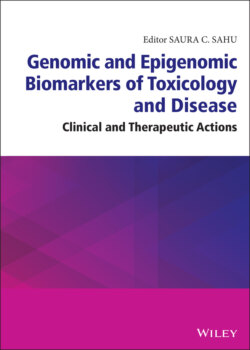Читать книгу Genomic and Epigenomic Biomarkers of Toxicology and Disease - Группа авторов - Страница 82
Exosomal miRNA as a Target for Malignant Mesothelioma
ОглавлениеExosomes provide the opportunity to deliver therapeutic cargo to cancer stroma. The cells were treated with exosome-enriched miR-126. The reduced miR-126 content in fibroblasts in favor of endothelial cells reduced angiogenesis and suppressed cell growth in an miR-126-sensitive environment. Conversely, the accumulation of miR-126 in fibroblasts and the reduced level of miR-126 in endothelial cells induced tube formation in a miR-126-resistant environment via VEGF/EGFL7 upregulation and IRS1-mediated cell proliferation. These findings suggest that the transfer of miR-126 via exosomes represents a novel strategy to inhibit angiogenesis and cell growth in MM (Monaco et al. 2019).
Munson et al. (2019) employed small molecule inhibitors to block exosome secretion, thereby reducing miR-16-5p exosome loss and replenishing cellular miR-16-5p. These processes led to reduced tumorigenic capacity and miR-16-5p target oncoproteins CCND1 and BCL2. Additionally, the researchers force-fed MM tumor exosomes back to MM tumor cells, which caused cell death and a reduction in the same oncoproteins.
